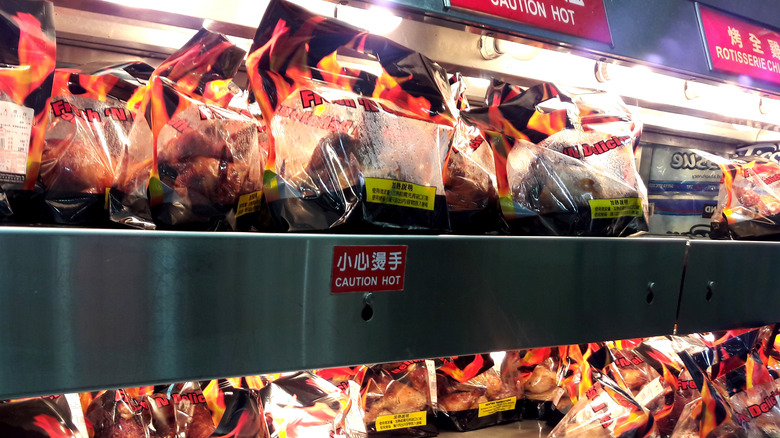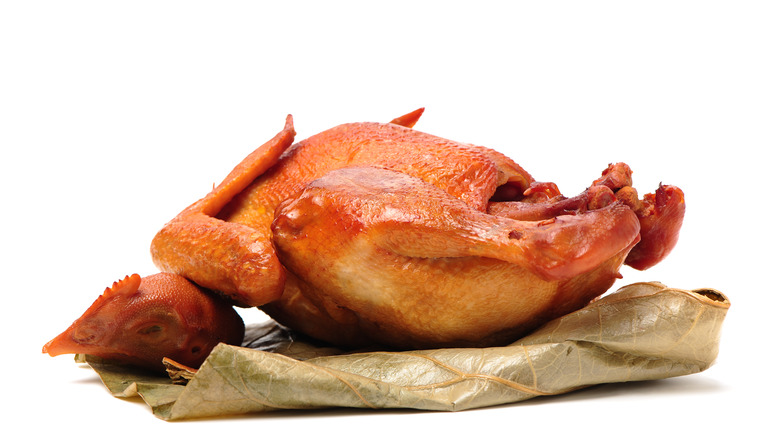The Traditional Way Costco Sells Its Rotisserie Chicken In Taiwan
While most consumers associate Costco with the U.S., the beloved bulk retailer is actually found worldwide. In addition to North American neighbors Canada and Mexico, the brand has a presence in Europe, Asia, and Oceania. And 14 of their Asian locations are found on the island nation of Taiwan.
What's sold at stores is regional, with both country-specific products and offerings like fried chicken exclusive to Taiwanese food courts. You'll also find commonalities, like Costco's really good rotisserie chicken, which is available in Taiwan, too — however with one unique attribute.
On the island, the whole chicken includes the head, as is customary in the region. As noted on a Reddit thread, the inclusion signifies the birds are fresh. Additionally, a complete chicken carries symbolic significance in Chinese culture and is commonly served during Lunar New Year Feasts. So by selling the bird whole, Costco caters both to local tastes and traditions — a considerate regional choice.
Taiwanese preferences for chicken are often different than in the US
Keeping the head on rotisserie chickens is not the only culturally different approach the Taiwanese enjoy chicken from Americans. In the U.S., consumers prefer white meat chicken, opting for breasts and deboned thigh varieties. However, it's not a universal predisposition — in Taiwan, dark meat is the protein of choice. It's the meat type employed in night market favorites like Taiwanese style popcorn chicken, and whole legs are cut and used for national favorite three cup chicken. Additionally, cuts often discarded in the U.S. are also commonly enjoyed. Stewed chicken feet are a local favorite, and street food stalls will sell delicious renditions of varying boiled organs, boney bits, and other parts.
With such a poultry culture, it comes as no surprise that Costco's offering is also kept head intact. Additionally, shoppers report that oftentimes the birds come in smaller size than in the U.S., which is also due to American selective breeding making birds exceptionally large. However, many consumers in Taiwan will likely not mind more meat on the bone. It's a different type of dining custom, but one still full of culinary delights.

